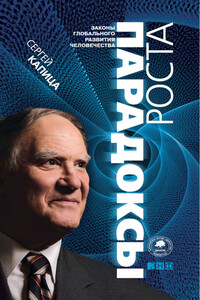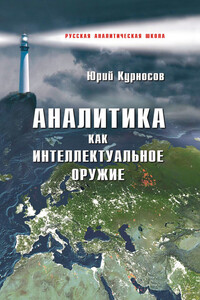Редакторы Р. Пискотина, Е. Чудинова
Руководитель проекта И. Серёгина
Корректор М. Савина
Компьютерная верстка Е. Сенцова, Ю. Юсупова
Дизайнер обложки О. Белорус
Фотограф А. Ватман
Фото на обложке из архива телекомпании «Очевидное – невероятное»
Издание подготовлено при поддержке Фонда Дмитрия Зимина «Династия»
© С.П. Капица, 2010
© ООО «Альпина нон-фикшн», 2012
Все права защищены. Никакая часть электронной версии этой книги не может быть воспроизведена в какой бы то ни было форме и какими бы то ни было средствами, включая размещение в сети Интернет и в корпоративных сетях, для частного и публичного использования без письменного разрешения владельца авторских прав.
© Электронная версия книги подготовлена компанией ЛитРес (www.litres.ru)
* * *
Памяти Андрея Капицы
Институт социально-экономических
проблем народонаселения РАН
Инстутут физических проблем
им. П.Л. Капицы РАН
Sergey P. Kapitza
Paradoxes of growth
Global demography and history оf mankind
Of all the global problems looming on our common horizon that of population growth comes fi rst, as it sets the scene for considering major issues of social and economic development. In dealing with these matters a new way has to be found to comprehend the challenge of change. For one has to go beyond the agenda of demography and economics, sociology and anthropology, and see mankind as an evolving system. In modelling global population, growth is practically described over the whole of human history by assuming self-similarity as the dynamic principle of development. This nonlinear growth, proportional to the square of the number of people in the world, is due to a collective interaction of an informational nature. Estimates of the beginning of human development 4–5 million years ago and of the total number of people who have ever lived since then 100 billion are made. Large scale cycles, defi ned by history and anthropology, are shown to follow an exponential pattern of growth, now rapidly culminating in the demographic transition. This is a veritable revolution, when global population growth is to stabilize at 10–12 billion in the foreseeable future. In this New World, not dictated by numerical growth, education and science will become the main issues in a knowledge society of an information-dominated world. It is then, where the old outnumber the young, to be sustainable, a new system of values are to develop, when the quality of life is to become the aim of development, rather than quantative growth of the past.
При первой встрече с человеком вас всегда интересует его возраст, и в зависимости от того, кто перед вами: маленький мальчик, молодая женщина или почтенный старец, – ваше отношение будет разным. Далее вас может заинтересовать состав его семьи, сколько братьев и сестер у вашего собеседника. Отправляясь в другой город или страну, вы захотите узнать, каково их население. Если же нашу планету посетит инопланетянин, то его первый вопрос при встрече, несомненно, будет: а сколько здесь людей и как долго они здесь живут? Данная книга посвящена именно этому вечному кругу вопросов.






